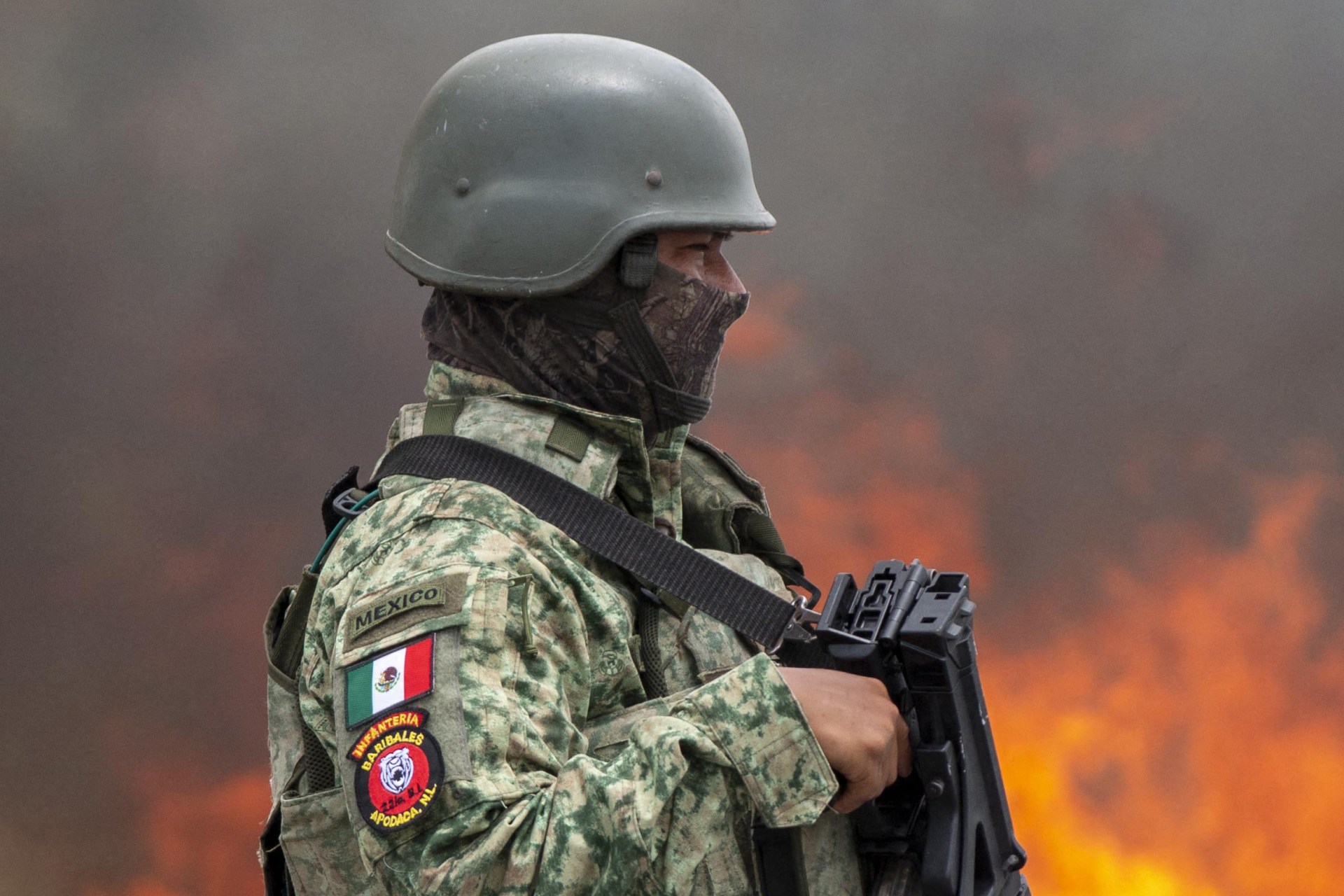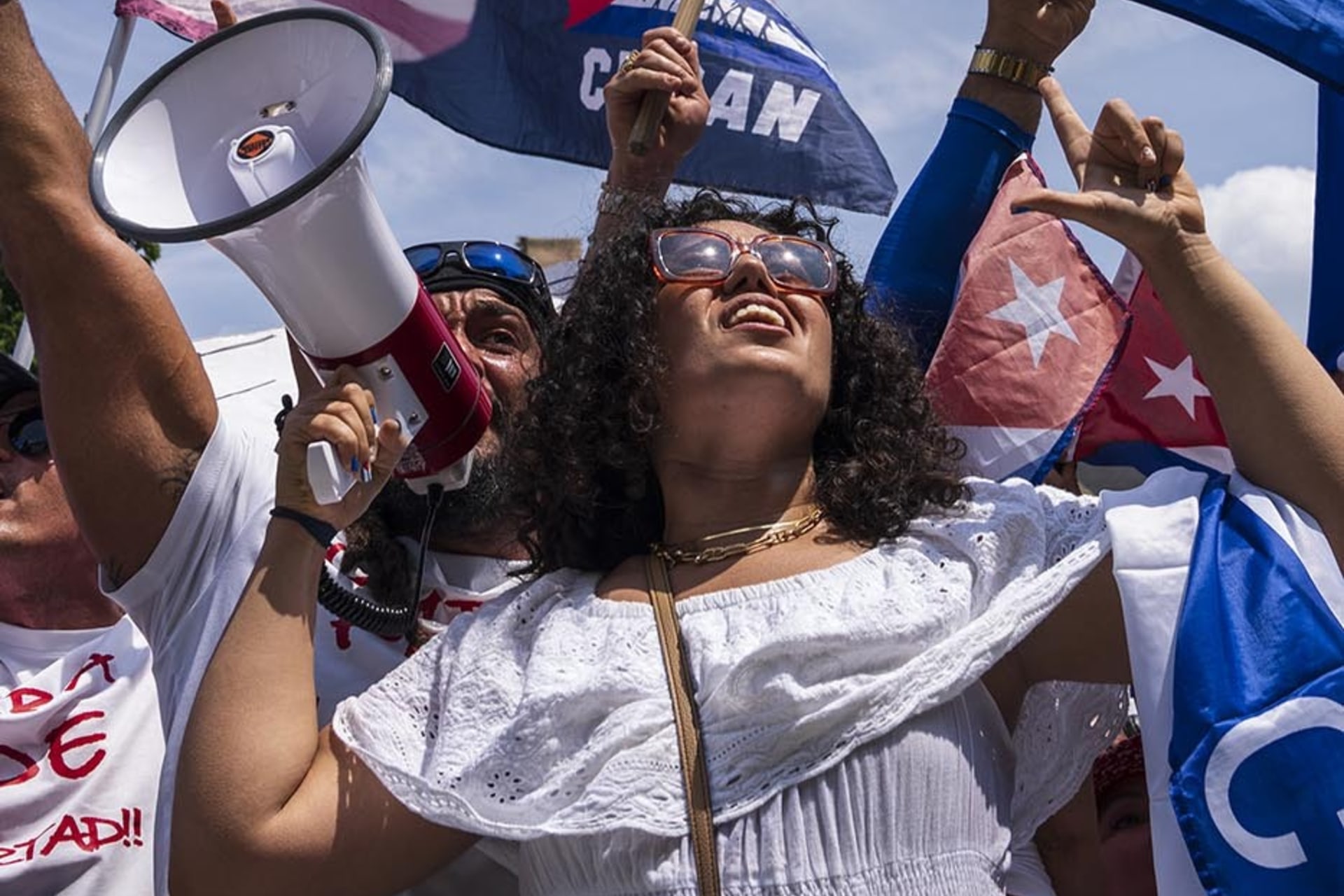Palestinian Islamic Jihad
Published
The Palestinian Islamic Jihad is an Iranian-inspired Islamic militant group that aims to derail the Israeli-Palestinian peace process and eliminate Israel from the region.
This publication is now archived.
Introduction
The Palestinian Islamic Jihad (PIJ) is an Islamic, Palestinian nationalist organization that violently opposes the existence of Israel. Designated as a U.S. State Department terrorist organization in 1997, the PIJ targets Israeli civilian and military personnel in its commitment to the creation of an Islamic regime in “all of historic Palestine,” according to the State Department’s 2006 Country Report on terrorism. The PIJ, unlike Fatah or Hamas, does not participate in the political process.
When did the Palestinian Islamic Jihad emerge?
The founders of the Palestinian Islamic Jihad, Fathi Shaqaqi and Abd al-Aziz Awda, were students in Egypt and members of the Egyptian Muslim Brotherhood until the late 1970s when they decided that the brotherhood was becoming too moderate and insufficiently committed to the Palestinian cause. The PIJ emerged as a separate entity committed to the militant destruction of Israel and the reestablishment of a sovereign Palestinian state. The PIJ, despite being a Sunni group, took inspiration from revolutionary, theocratic Shia ideals espoused during the 1979 Iranian Revolution that established an Islamic regime.
What are the goals of the Palestinian Islamic Jihad?
The Palestinian Islamic Jihad wants to reestablish a sovereign, Islamic Palestinian state with the geographic borders of the pre-1948 mandate Palestine. The PIJ advocates the destruction of Israel through violent means; it approaches the Arab-Israeli conflict as an ideological war, not a territorial dispute. PIJ members see violence as the only way to remove Israel from the Middle East map and reject any two-state arrangement in which Israel and Palestine coexist.
The PIJ, unlike other Palestinian separatist groups, refuses to negotiate or engage in the diplomatic process. It does not seek political representation within the Palestinian Authority. The PIJ is also accused of attempting to hinder the efforts of the 1993 Oslo Accords by launching several terrorist attacks on Israeli targets.
Does the Palestinian Islamic Jihad have any state sponsors?
Yes. According to the U.S. State Department, Iran funds most of the PIJ budget. The United States also accuses Syria of providing a “safe haven” for the group, and allowing PIJ headquarters to remain in Damascus.
How does the PIJ differ from Hamas?
The PIJ is a rival militant group, often vying for the support of the same Palestinians. However, the PIJ offers no social services, nor does it intend to engage in any form of diplomatic dialogue with Israel. Much smaller than Hamas, PIJ members sanctify the land because of its historical significance to Islam and are fully committed to the group’s platform of destroying the state of Israel through violent means.
Who are the leaders of Palestinian Islamic Jihad?
 Fathi Shaqaqi moved from Gaza to Egypt to study medicine and became active with the Egyptian Muslim Brotherhood. He eventually denounced the organization because of its increasing moderation and left with PIJ’s longtime spiritual leader, Abd al-Aziz Awda. Shaqaqi moved across the Middle East, going where exile took him, before finally settling in Damascus under Syrian protection. Shaqaqi remained the head of the organization until his 1995 death in Malta, allegedly at the hands of Israeli agents, according to Military.com. He was replaced by Ramadan Abdallah Shallah, a British-educated Palestinian, who taught Middle Eastern courses at the University of South Florida from 1990 to 1995.
Fathi Shaqaqi moved from Gaza to Egypt to study medicine and became active with the Egyptian Muslim Brotherhood. He eventually denounced the organization because of its increasing moderation and left with PIJ’s longtime spiritual leader, Abd al-Aziz Awda. Shaqaqi moved across the Middle East, going where exile took him, before finally settling in Damascus under Syrian protection. Shaqaqi remained the head of the organization until his 1995 death in Malta, allegedly at the hands of Israeli agents, according to Military.com. He was replaced by Ramadan Abdallah Shallah, a British-educated Palestinian, who taught Middle Eastern courses at the University of South Florida from 1990 to 1995.
Eight leaders of the Palestinian Islamic Jihad were indicted by federal authorities in 2003 on fifty charges, while only one, Sami al-Arian, was arrested and sent to trial. Al-Arian has denied (CNN) having links to terrorism.
What is the history of the Palestinian Islamic Jihad?
After splitting from the Muslim Brotherhood in the late 1970s, Shaqaqi and Awda operated the PIJ from Egypt until 1981, when the Egyptian government exiled the group to Gaza following the assassination of President Anwar Sadat. The PIJ remained in Gaza until 1987, when the group was exiled to Lebanon. While in Lebanon, the PIJ leadership cultivated a relationship with Hezbollah and received training from the Iranian Revolutionary Guards. In 1989 Shaqaqi moved the official headquarters to Damascus, where it remains, although a small contingent of leaders are still present in Lebanon, according to the State Department. The continued presence in South Lebanon allowed the PIJ and Hezbollah to launch joint attacks in the 1990s.
Currently, the Palestinian Islamic Jihad is a small, highly secretive organization that operates underground with less than 1,000 members and limited popular support. The 2003 U.S. indictment of eight senior members of the group diminished its strength.
What type of attacks does it launch?
The PIJ often carries out suicide bombings that target civilians and military personnel, although the frequency of attacks inside Israeli territory has decreased since the construction of security barriers around Gaza. There have been no direct attacks on U.S. properties or citizens—some have died in attacks—although the PIJ threatened to attack the U.S. embassy if it was relocated to Jerusalem from Tel Aviv. The following is an abbreviated list of attacks that have been claimed by the PIJ the over the years:t
- An August 1987 shooting killed the commander of the Israeli military police in the Gaza Strip;
- A December 1993 shooting killed Israeli reservist David Mashrati aboard a bus;
- An April 1994 car bomb killed nine people and injured fifty aboard a public bus;
- A January 1995 a suicide bomb killed eighteen soldiers and one civilian near Netanya;
- A March 1996 suicide bomb at a Tel Aviv shopping mall killed thirteen and injured seventy five more;
- A June 2001 suicide bomb killed twenty-one people in a Tel Aviv nightclub;
- A June 2002 suicide attack at the Meggido Junction killed eighteen and injured fifty;
- An October 2003 suicide bomb at a Haifa restaurant killed twenty-two and injured sixty;
- An October 2005 bomb at a Hadera market killed five people;
- An April 2006 suicide attack in Tel Aviv killed eleven;
- A January 2007 suicide attack at an Eliat bakery killed three. Both the Al-Aqsa Martyrs Brigades and the PIJ claim responsibility.
Colophon
Staff Writers
- Holly Fletcher





